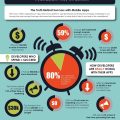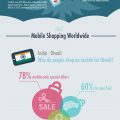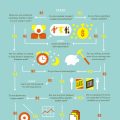The Importance of Data-Driven Marketing: How to Use Analytics for Success

The share of all income in US of top 1% and top 0.1% of population. Source: https://en.wikipedia.org/wiki/Income_inequality_in_the_United_States
The Importance of Data-Driven Marketing: How to Use Analytics for Success
In today’s digital age, businesses are constantly looking for ways to stay ahead of the competition. One key strategy that can help you achieve this is data-driven marketing. By using analytics and data to inform your marketing decisions, you can increase conversions, boost sales, and build a loyal customer base.
What is Data-Driven Marketing?
Data-driven marketing is an approach to marketing that relies on the use of data and analytics to make informed decisions about your campaigns. This means using real-time data and metrics to measure the performance of your marketing efforts, identify areas for improvement, and adjust your strategy accordingly.
Why is Data-Driven Marketing Important?
There are several reasons why data-driven marketing is so important:
- Improved Accuracy: By using data to inform your marketing decisions, you can eliminate guesswork and make more accurate predictions about what will work and what won’t.
- Increased Efficiency: Data-driven marketing allows you to optimize your campaigns for better results, reducing waste and increasing the efficiency of your marketing efforts.
- Better Customer Insights: By analyzing customer data and behavior, you can gain a deeper understanding of who your customers are, what they want, and how you can meet their needs.
- Competitive Advantage: Businesses that use data-driven marketing to inform their strategies are more likely to be ahead of the curve and outperform their competitors.
How to Use Analytics for Success
So, how can you start using analytics to drive your marketing strategy? Here are some tips:
- Start with the Basics: Begin by setting up analytics tools such as Google Analytics or Adobe Analytics to track key metrics such as website traffic, conversion rates, and click-through rates.
- Define Your Goals: Clearly define what success means for your business. Are you looking to increase sales, boost engagement, or drive brand awareness? Once you have a clear goal in mind, you can focus on using analytics to achieve it.
- Track Key Metrics: Identify the most important metrics that will help you measure success. For example, if your goal is to increase sales, you may want to track conversion rates, average order value, and customer lifetime value.
- Analyze Your Data: Regularly review your data to identify trends and patterns. Look for opportunities to improve your campaigns, such as increasing engagement or improving customer satisfaction.
- Make Adjustments: Based on your analysis, make adjustments to your marketing strategy to optimize performance. This may involve tweaking ad copy, adjusting targeting options, or exploring new channels.
Types of Data to Use in Marketing
There are several types of data that can be used in marketing, including:
- Website Analytics: Website analytics provide insights into how users interact with your website, including traffic patterns, bounce rates, and conversion rates.
- Social Media Analytics: Social media analytics allow you to track engagement metrics such as likes, shares, and comments on social media platforms.
- Customer Data: Customer data provides insights into customer behavior, preferences, and demographics. This can be used to personalize marketing campaigns and improve customer satisfaction.
- Email Marketing Metrics: Email marketing metrics provide insights into open rates, click-through rates, and conversion rates for email campaigns.
Best Tools for Data-Driven Marketing
There are many tools available that can help you use analytics to drive your marketing strategy, including:
- Google Analytics: Google Analytics is a powerful tool for tracking website traffic, behavior, and conversions.
- Adobe Analytics: Adobe Analytics provides advanced analytics capabilities, including segmentation, attribution modeling, and predictive analytics.
- HubSpot Analytics: HubSpot Analytics offers a range of tools for tracking marketing metrics, including website traffic, lead generation, and customer satisfaction.
- Mailchimp Analytics: Mailchimp Analytics provides insights into email open rates, click-through rates, and conversion rates.
Conclusion
Data-driven marketing is an essential strategy for any business looking to stay ahead of the competition. By using analytics and data to inform your marketing decisions, you can increase conversions, boost sales, and build a loyal customer base. Remember to start with the basics, define your goals, track key metrics, analyze your data, and make adjustments as needed. With the right tools and approach, you can unlock the full potential of data-driven marketing and achieve success in today’s fast-paced digital landscape.







